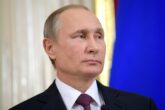February 01, 2020
NATO: The challenge from within
On 4 December 2019, NATO leaders gathered in London to discuss pressing security issues and to mark the 70th anniversary of the Alliance’s founding. Analysts on both sides of the Atlantic were rightfully worried about what would transpire over the day-and-a-half of meetings, given the number of irritants that could have derailed the entire event. Luckily, it went off with only a little bit of drama — for the most part, allied leaders gathered for the traditional family photo, stressed the importance of collective defence, and talked about issues such as hybrid threats, military readiness, and defence spending. This was largely to be expected: over the last few years NATO countries have tried to put on a united front when necessary.
While this is all well and good, there is no hiding the fact that today NATO is grappling with major strategic challenges. Unfortunately, these challenges aren’t posed only by outside actors like Russia, or trying to answer big-picture questions like NATO’s role in new and emerging security domains. Instead, some of NATO’s most pressing challenges are fundamental, and they are emanating from within.
Democratic backsliding
The first and perhaps most dangerous internal challenge today is democratic backsliding amongst some of its own members, namely Turkey and Hungary. Since a failed coup attempt in July of 2016, Turkish President Recep Tayyip Erdogan has cracked down on freedoms within the country and begun a slide toward authoritarianism. Today, Turkey leads the world in numbers of jailed journalists, its courts work in tandem with Erdogan’s regime, elections are neither free nor fair, and its “democratic institutions” have no real impact.1 Moreover, Turkey recently purchased a Russian-made S-400 missile defence system, and in October launched an invasion into Kurdish-held northern Syria. Both moves have resulted in strong condemnation from fellow NATO allies.
Read more from the Raisina Debates.
- “Turkey leads the world in jailed journalists”, The Economist, January 16, 2019. ↩
More from CNAS
-
Trump ‘Humiliated’ as Putin Sends Clear Message That He Doesn’t Care About US
"Putin is not playing ball." Putin's Palm Sunday attack on Sumy is "embarrassing for the White House" as it comes just days after Steve Witkoff met with the Kremlin, says adju...
By Jim Townsend
-
The Hidden Past and Uncertain Future of the U.S. and Ukraine with Celeste Wallander
Under the Trump administration, U.S. support for Ukraine is no longer guaranteed. President Trump's pause on aid and intelligence to Ukraine in March may have been brief, but ...
By Andrea Kendall-Taylor, Jim Townsend & Celeste Wallander
-
Is Russia Under Pressure?
Since 2014, the United States and its allies have provided increasing military support to Ukraine while imposing more and tougher economic sanctions on Russia, especially sinc...
By Jeffrey Edmonds
-
Sharper: Russia and the Axis of Upheaval
Russia’s 2022 invasion of Ukraine served as a dramatic catalyst for strengthening the global axis of upheaval. To sustain its war effort, Russia has imported Iranian weapons a...
By Charles Horn




